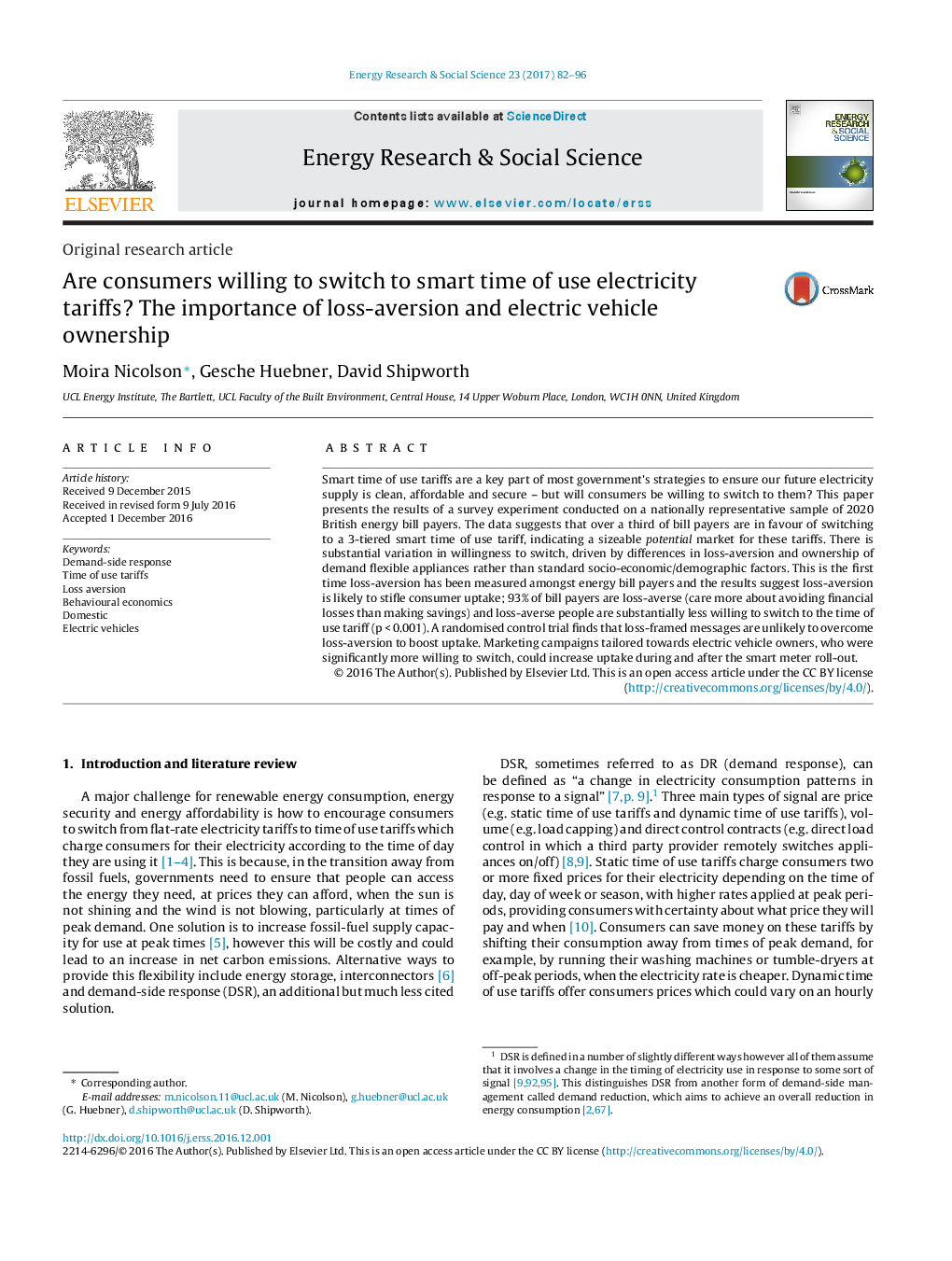ترجمه فارسی عنوان مقاله
آیا مصرف کنندگان مایل به تعویض به زمان هوشمندانه تعرفه برق استفاده می کنند؟ اهمیت از دست دادن غفلت و مالکیت وسایل نقلیه الکتریکی
عنوان انگلیسی
Are consumers willing to switch to smart time of use electricity tariffs? The importance of loss-aversion and electric vehicle ownership
| کد مقاله | سال انتشار | تعداد صفحات مقاله انگلیسی |
|---|---|---|
| 91389 | 2017 | 15 صفحه PDF |
منبع

Publisher : Elsevier - Science Direct (الزویر - ساینس دایرکت)
Journal : Energy Research & Social Science, Volume 23, January 2017, Pages 82-96
ترجمه کلمات کلیدی
واکنش تقاضای جانبی، تعرفه زمان استفاده ناامیدی از دست دادن اقتصاد رفتاری، داخلی، وسایل نقلیه الکتریکی،
کلمات کلیدی انگلیسی
Demand-side response; Time of use tariffs; Loss aversion; Behavioural economics; Domestic; Electric vehicles;

